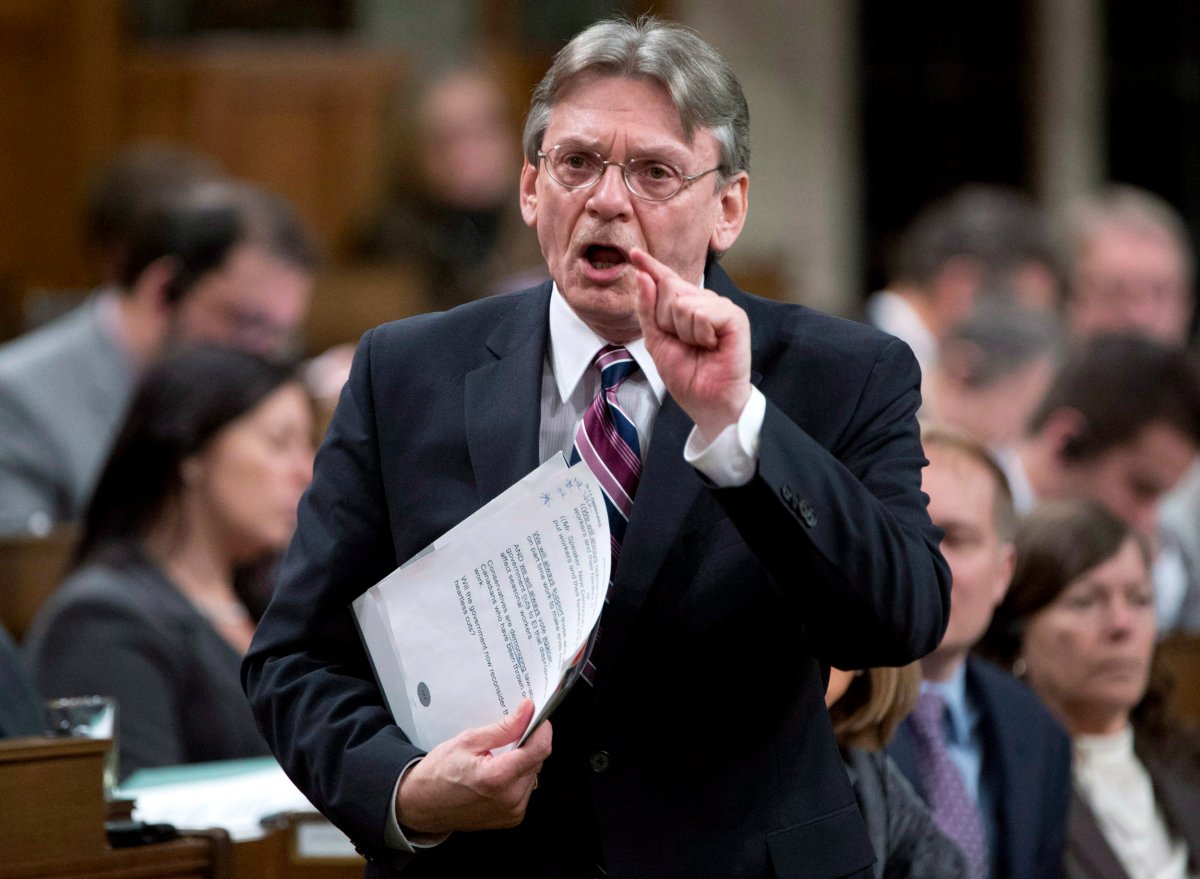OTTAWA – David Christopherson’s throat is a little sore and he’s feeling a bit “fuzzy in the thinking.”

But make no mistake – the NDP MP for Hamilton-Centre could have kept talking.
“I’ve been talking for half a century now, some would argue non-stop,” he said. “I could have gone longer, physically. Not forever – but I could have gone longer.”
You could say Christopherson spoke for long enough – an estimated eight hours during a Parliamentary committee Tuesday, part of his party’s filibuster of the government’s handling of the Fair Elections Act.
He isn’t the first politician to use the tactic of long speeches to delay the business of the House of Commons or a committee – the Liberals succeeded in forcing two days of votes in committee on the government’s second omnibus budget bill in 2012.
But Christopherson, the NDP’s deputy leader, may be the only one to do it under such strict circumstances.
The 59-year-old former provincial cabinet minister and labour leader was only allowed to talk about two topics relating to a motion he introduced about the bill: witnesses, and committee travel.
If he strayed off-topic, he would be ruled out of order and lose the floor. And because he had also filibustered for shorter periods of time in the past two Procedure and House Affairs committee meetings, he wasn’t allowed to repeat himself.
“It’s easy in the first 10 minutes but let me tell you, by the time you get to five, six, seven hours, it gets tougher,” he said.
You could say he made the most of it.
“It’s clearly the longest I have spoken non-stop as an elected person, and I was first elected in 1985,” he said.
The key, Christopherson said, is preparation. And having a lot of stories to tell.
When he spoke about potential witnesses, “I was trying to read as much biography as I could.” He also suggested places the committee could travel if they launched cross-country consultations on the bill, such as Iqaluit.
“I had my staff do research on what accommodations are available for committees that have been there before. I had flight times. I’d been to Iqaluit a number of times, so I could describe it,” he said. He also gave examples from other countries that have held hearings on bills that concern the electoral system – such as Zimbabwe.
This comes naturally to him: Christopherson won his first speech contest at age 10.
“My speech coach was my mom, who’s a bigger ham than I am. And my dad was a salesperson, so it was almost inevitable that I’d end up here,” he said.
But as time went on he realized he was running out of material.
“No matter where I was, I was getting on thinner and thinner ice,” he said.
Christopherson was allotted two “health breaks” when the committee broke for votes, and nibbled on some food throughout the day “for sustenance”at the insistence of his staff.
But mostly he tried to remain focused and figure out the “pivot” point – when he could quit and get some sort of compromise from the government.
That time came around 8:30 p.m., when the committee broke for votes. Christopherson, in discussions with Conservative MP Tom Lukiwski and Liberal MP Kevin Lamoureux, agreed to relinquish the floor in exchange for an agreement that Chief Electoral Officer Marc Mayrand could testify at committee this week for 90 minutes, and that the full meeting would be in public.
Christopherson considers it a success – especially because Mayrand will appear before Parliament takes a two-week break.
Lamoureux said the filibuster succeeded in highlighting the bigger picture, that neither the opposition nor Elections Canada was consulted on the details of the bill before it was tabled and fast-tracked to committee by the majority Conservatives.
Conservative MP Joe Preston, who chairs the committee, said the day was draining for him, too – especially because he had to pay attention to everything Christopherson said to ensure he was staying on topic without repeating himself.
“It may be a longer day for me than it was for him, although David and I spoke afterwards and we’re both equally tired,” he said.
Preston said he understands the move is a method of “dissent,” but it doesn’t change the fact that Mayrand would have testified anyways.
“We do strange things around here from time to time,” he said.
“We’ll do a good job of this piece of legislation. And we’ll do it collectively because the opposition will also share in the discussions.”
Fellow New Democrat Peter Julian, who held his own 16-hour filibuster over softwood lumber in 2006, said Christopherson was “much better” than he was, mostly because Julian got more relief through breaks and points of order.
“I would consider him the filibuster champion,” he said.
As for advice for anyone wishing to take up the endeavour in the future?
“A good bladder’s helpful.”



Comments